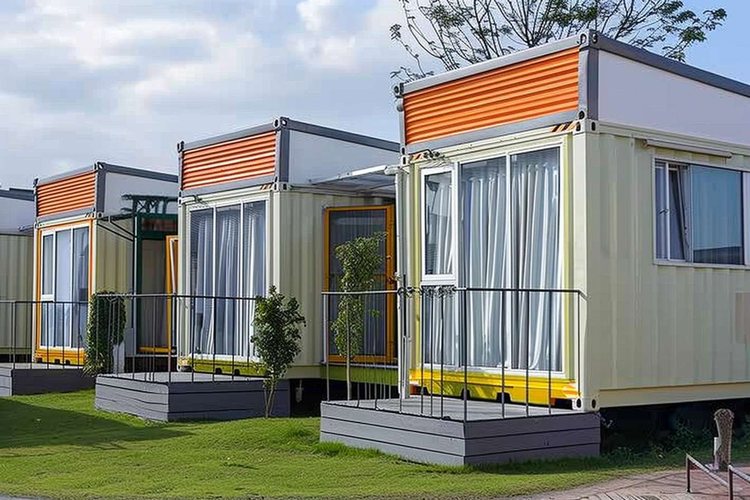The Complete Guide to Shipping Container Homes in Canada
Living sustainably while maintaining modern comfort has become increasingly important for Canadians, and shipping container homes represent an innovative solution to this challenge. These unique dwellings combine affordability, durability, and eco-friendly design, making them an attractive alternative to traditional housing. This comprehensive guide explores everything you need to know about container homes in Canada.

What Makes Container Homes Popular in Canada?
Container homes have gained significant traction in Canada due to their versatility and cost-effectiveness. These structures offer several advantages, including rapid construction times, reduced environmental impact, and lower material costs compared to traditional builds. The modular nature of shipping containers allows for creative architectural designs while maintaining structural integrity. Additionally, the growing focus on sustainable living has made container homes particularly appealing to environmentally conscious Canadians.
What Are the Typical Price Ranges for Container Homes?
The cost of container home construction in Canada varies significantly based on size, design complexity, and location. Basic single-container homes typically start at $30,000, while more elaborate multi-container designs can range from $100,000 to $250,000 or more. These prices include basic interior finishing but may not cover land costs or utility connections.
| Container Home Type | Base Price Range | Finished Price Range |
—|—|—
| Single Container (20ft) | $30,000 - $50,000 | $60,000 - $90,000 |
| Double Container | $60,000 - $80,000 | $120,000 - $160,000 |
| Luxury Multi-Container | $150,000+ | $200,000 - $400,000 |
Prices, rates, or cost estimates mentioned in this article are based on the latest available information but may change over time. Independent research is advised before making financial decisions.
How Do Container Homes Handle Canadian Weather?
Container homes can be effectively adapted for Canada’s diverse climate conditions through proper insulation and weatherproofing. Steel containers naturally withstand heavy snow loads and strong winds, but additional modifications are necessary for extreme temperatures. Professional builders typically use spray foam insulation (R-value of 20-40) and install proper vapor barriers to prevent condensation. Specialized roofing systems and strategic window placement help manage both summer heat and winter cold.
What Design and Customization Options Are Available?
Modern container homes offer extensive customization possibilities. Popular options include:
-
Multiple container combinations for expanded living space
-
Full-height windows and sliding glass doors
-
Rooftop gardens and outdoor living spaces
-
Custom interior layouts with open-concept designs
-
Energy-efficient features like solar panels and rainwater collection systems
What Are the Legal Requirements for Building Container Homes?
Building a container home in Canada requires compliance with local building codes and zoning regulations. Key considerations include:
-
Obtaining proper building permits and inspections
-
Meeting residential building code requirements
-
Ensuring compliance with local zoning bylaws
-
Following foundation and structural requirements
-
Meeting minimum insulation and energy efficiency standards
Which Builders Specialize in Container Homes Across Canada?
Several reputable companies offer container home construction services across Canada:
| Builder | Location | Specialization |
—|—|—
| Honomobo | Alberta | Modern design, turnkey solutions |
| Giant Container Services | Ontario | Custom builds, multi-unit projects |
| Cocoon Homes | British Columbia | Sustainable designs, off-grid options |
Container homes represent a viable housing solution for Canadians seeking affordable, sustainable, and unique living spaces. While initial challenges exist regarding permits and weather adaptation, the benefits of durability, cost-effectiveness, and environmental sustainability make them an increasingly popular choice. Success with a container home project requires careful planning, professional expertise, and thorough understanding of local regulations.



